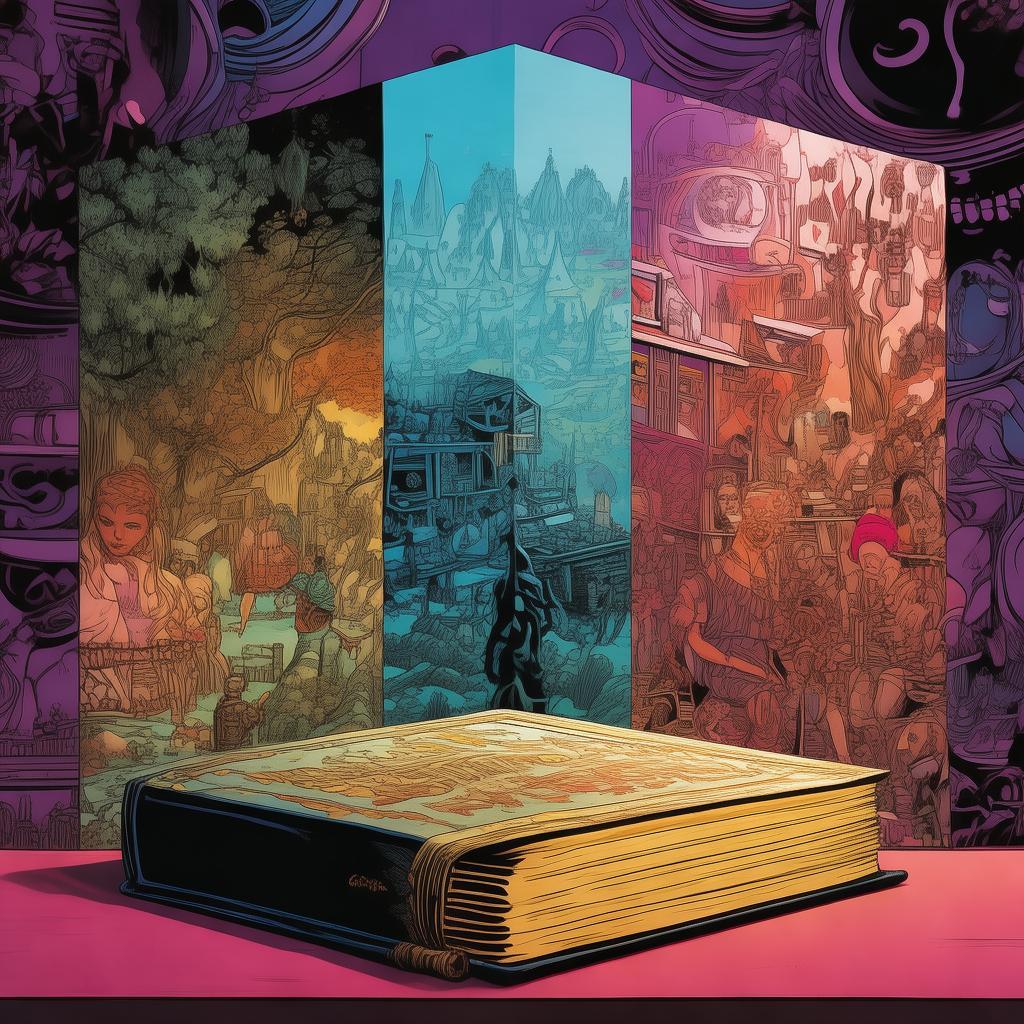The Boy Who Chased Infinity
In the quaint town of Arcadia, nestled between the rolling hills and ancient oaks, lived a boy named Eli. His eyes were a striking shade of blue, and they sparkled with the intensity of a mind constantly at work. Eli was not your average child; he was a prodigy, a boy who could make the numbers dance in his head and weave tales of infinity from mere equations.
It was on a drizzly afternoon that Eli discovered the ancient scroll tucked away in his late grandfather's study. The scroll was yellowed with age, its edges worn, and its pages filled with cryptic symbols and equations. It spoke of an ancient conundrum, one that had eluded the greatest minds in history—a secret that could unravel the fabric of the universe itself.
The scroll read, "In the realm of infinity, where the numbers play their endless dance, there lies a truth that can shatter the bounds of the known."
Eli's heart raced with a mix of excitement and trepidation. He knew that the conundrum was not a mere mathematical exercise but a key to a truth that could change everything. Determined to uncover the secret, he set out on a journey that would take him from the dusty libraries of Arcadia to the bustling streets of Paris, and eventually to the remote monasteries of the Tibetan plateau.
The first clue led him to a mathematician named Madame Dupont in Paris, who had been studying the scroll for years. "Eli," she said, "the riddle you seek is not one of arithmetic but of philosophy and the soul of man. It asks not only what is, but what could be."
Eli's resolve grew stronger. The conundrum involved a sequence of numbers that, when multiplied by themselves in a specific pattern, seemed to approach infinity but never quite reach it. Madame Dupont warned him of the dangers of chasing infinity, for it was a path that led to madness. But Eli was undeterred.
His next stop was the remote monasteries of Tibet, where the secrets of the ancients were still kept sacred. Here, he found an old monk who had studied the scroll as a young boy. The monk's eyes held the wisdom of the ages as he recited the final lines of the riddle: "The infinity you seek is not a number, but a space between. Look within the void, for it is there that you will find the truth."
Eli's mind raced with possibilities. He realized that the riddle was not about numbers at all, but about the spaces between them. It was a metaphor for the vastness of human potential, the infinite possibilities that lie within the unknown.
Back in Arcadia, Eli tested his theory. He began to create equations that represented not just numbers, but the spaces between them. To his astonishment, the equations began to converge, revealing a pattern that he had never seen before. It was as if he had discovered a new dimension, a realm of possibilities that defied the very laws of mathematics.
As the numbers intertwined and the equations grew, Eli felt a sense of awe and wonder. He had not just solved the conundrum; he had opened a door to a new understanding of the universe. The secret of infinity was not a number, but a concept—a space that allowed for creativity and growth.
Word of Eli's discovery spread quickly. Mathematicians and scientists from all over the world descended upon Arcadia, eager to see the proof of his findings. In a grand presentation, Eli revealed his equations to the world. The crowd was silent, then erupted into applause. The boy who had chased infinity had not just solved a mathematical problem; he had expanded the limits of human knowledge.

Eli's life changed forever. He became a celebrated mathematician, a bridge between the old and the new. The scroll that had started it all was now in a museum, a relic of a bygone era. But the conundrum it had contained was a living truth, a reminder that infinity was not just a concept but a state of being—a space within which we can explore and expand.
The boy who had chased infinity had found his truth, and in doing so, he had shown the world that the most profound secrets lie not in numbers, but in the spaces between them. And so, the story of Eli became a legend, a tale of a young mind's boundless curiosity and the power of human potential.
The ending of Eli's story is a full circle. He returned to his hometown, not as a prodigy but as a teacher, sharing his passion for mathematics with the next generation. The void that once seemed so vast and unattainable was now a space filled with potential and promise. And in the heart of Arcadia, a boy named Eli had left his mark, a testament to the boundless possibilities that lie within the infinity of the human spirit.
✨ Original Statement ✨
All articles published on this website (including but not limited to text, images, videos, and other content) are original or authorized for reposting and are protected by relevant laws. Without the explicit written permission of this website, no individual or organization may copy, modify, repost, or use the content for commercial purposes.
If you need to quote or cooperate, please contact this site for authorization. We reserve the right to pursue legal responsibility for any unauthorized use.
Hereby declared.









